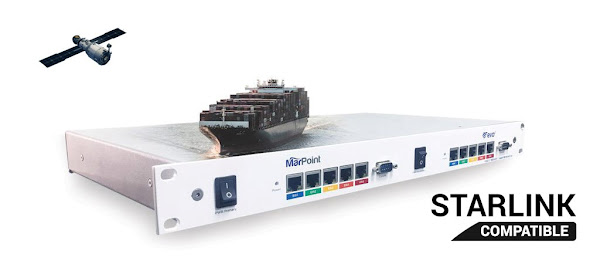#43 How MarPoint protects you

UNI VM, the awarded solution for Maritime Cyber Safety Uni is a virtualization solution for vessels that provides a high availability, active-active cluster for managing onboard systems and applications. It offers customization options that can adapt to any IT infrastructure on board, utilizing existing equipment and high-end specs. MarPoint’s Central Management Platform provides a holistic approach to IT infrastructure management, ensuring a seamless and efficient operation. MarPoint’s solutions are designed to comply with IMO 2021 guidelines and IACS URs E26 & E27 for cyber safety, making them a reliable choice for businesses seeking to enhance their cyber resilience and minimize the risk of cyber attacks. Evo2 Router The Evo2 Router is an ABS Class-Approved multi-WAN network management solution that provides seamless internet connectivity, independent of the airtime provider. Equipped with redundant hardware components, it ensures true failover and advanced network manag...

